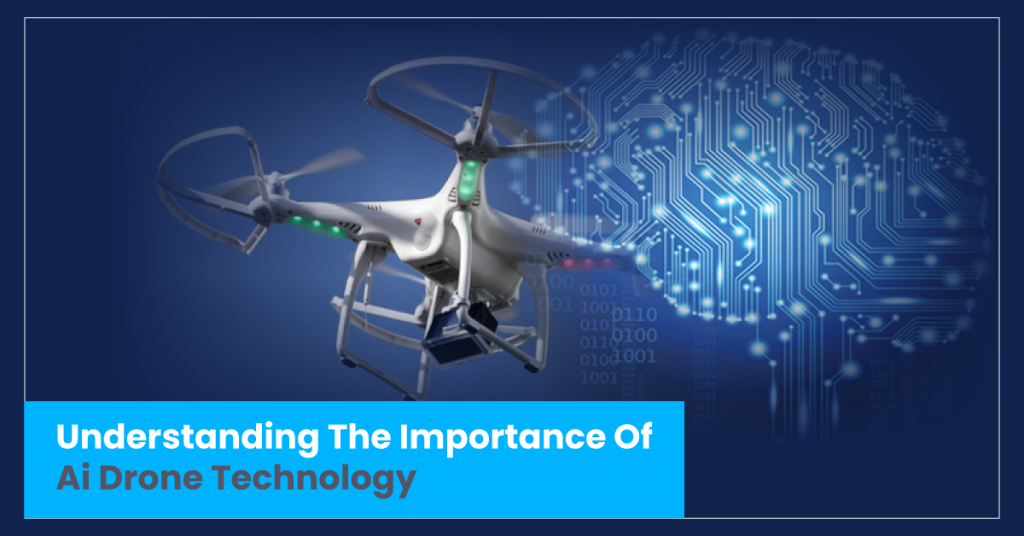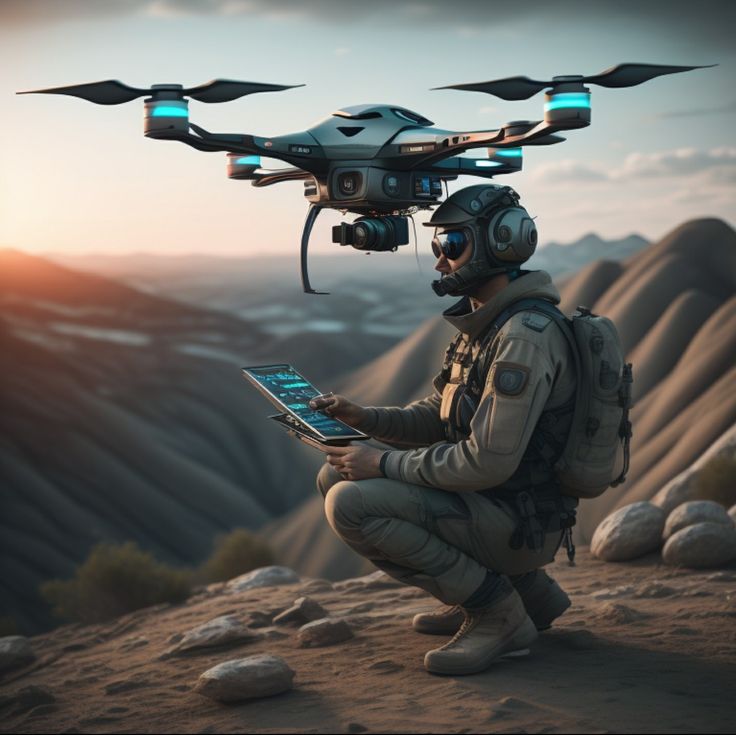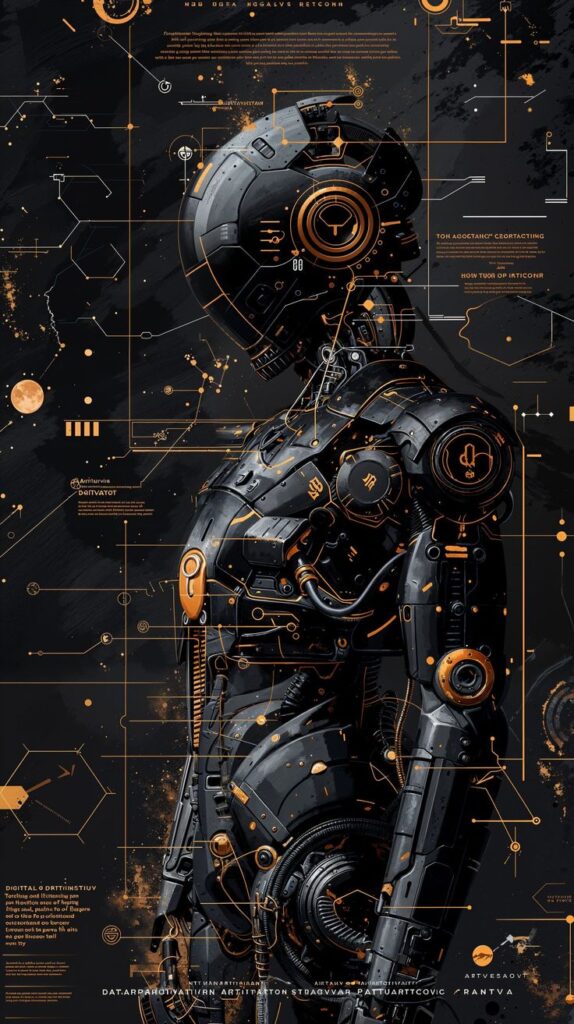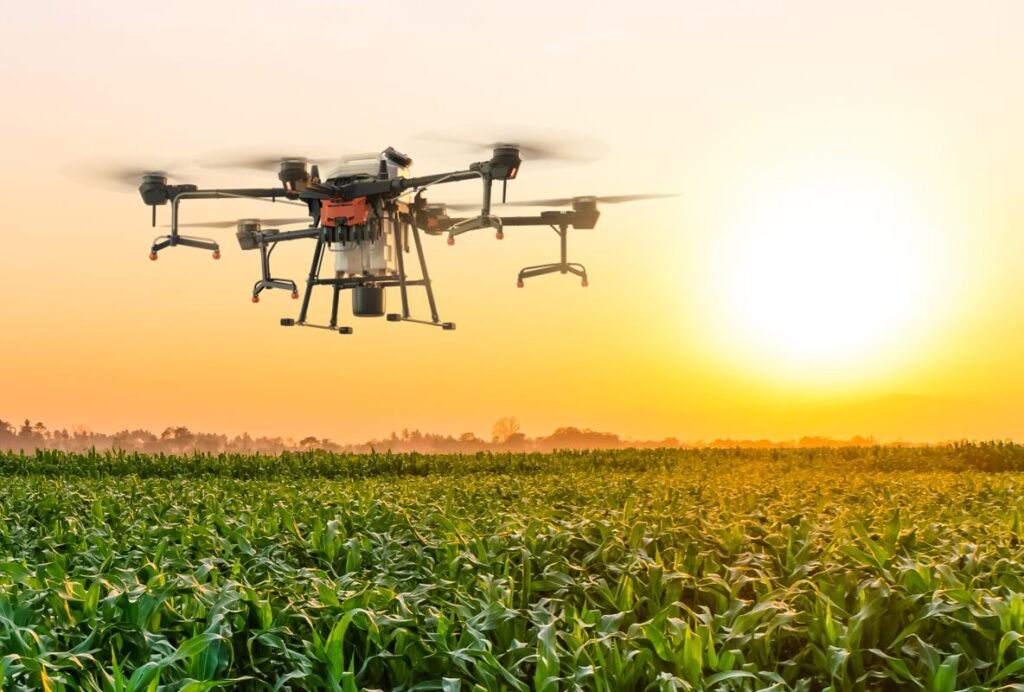Meta Description
“Explore the future of drone surveying with AI and machine learning, unlocking new possibilities in accuracy and data processing.”
Introduction
The integration of artificial intelligence (AI) and machine learning (ML) into drone surveying is revolutionizing industries such as agriculture, construction, and environmental monitoring. These technologies enhance data accuracy, streamline operations, and open up new possibilities for drone applications. As we look ahead, the future of drone surveying is set to be transformed in ways we are just beginning to understand.
Drones, equipped with advanced sensors and AI algorithms, are becoming indispensable tools for collecting and analyzing data. This evolution not only enhances traditional surveying methods but also creates opportunities for innovative applications across various sectors.
1. The Role of AI in Drone Surveying
AI is becoming increasingly essential in drone surveying, allowing for advanced data analysis and interpretation. By processing vast amounts of data collected from aerial surveys, AI algorithms can identify patterns and insights that humans might miss.https://blog.smartdrone.us/insights/the-role-of-ai-in-drone-surveys

Key Benefits of AI in Drone Surveying
- Enhanced Accuracy: AI algorithms improve the precision of data analysis, leading to more reliable survey results. This is crucial in applications like land assessment and environmental monitoring, where even minor inaccuracies can lead to significant consequences.
- Automated Processing: AI reduces the need for manual data processing, saving time and resources. Automation allows surveyors to focus on higher-level analysis rather than getting bogged down in routine tasks.
- Predictive Analytics: By analyzing historical data, AI can forecast future trends, helping businesses make informed decisions. This capability is especially beneficial in agriculture, where predicting crop yields can optimize resource allocation.
Expert Insight
“AI’s ability to learn from data is reshaping how we conduct surveys,” says Dr. Jane Smith, a leading researcher in drone technology. “It allows for real-time analysis and decision-making, which is crucial in today’s fast-paced environment.” This insight underscores the transformative potential of AI in optimizing surveying processes.
2. Machine Learning: Transforming Data Processing
Machine learning, a subset of AI, enables drones to learn from data and improve their surveying techniques over time. By training on vast datasets, machine learning models can refine their algorithms, enhancing their ability to capture and interpret data.

Applications of Machine Learning in Drone Surveying
- Object Detection: Machine learning can be used for identifying and categorizing objects in drone imagery, such as buildings, vegetation, and vehicles. This capability is vital for urban planning and environmental monitoring.
- Terrain Analysis: By analyzing topographic data, machine learning algorithms can assist in assessing land suitability and identifying potential hazards. This is particularly useful for infrastructure projects, where understanding the terrain is critical.
- Change Detection: Machine learning enables drones to compare current data with historical datasets, identifying changes in landscapes or infrastructure over time. This application is crucial for monitoring environmental impacts and urban development.
Case Study
In a recent project, a construction firm employed machine learning algorithms in drone surveys to monitor site progress. By comparing images over time, they identified delays and addressed issues proactively, resulting in a 15% reduction in project costs.
3. The Future of Drone Technology
As AI and machine learning continue to evolve, the future of drone surveying looks promising. Here are some anticipated advancements:
Drones and Robots in the Future: Transforming Industries and Daily Life https://robotnik.eu/the-future-is-here-artificial-intelligence-robots-transforming-industries/
1. Drones: Expanding Horizons
A. Applications Across Industries
- Delivery Services
- Companies like Amazon and UPS are exploring drone delivery systems to speed up logistics and reduce transportation costs.
- Urban environments will benefit from quick delivery solutions, enhancing customer satisfaction.
- Disaster Response
- Drones equipped with advanced sensors can quickly assess damage after natural disasters, providing real-time data to emergency responders.
- Their ability to reach remote or hazardous areas makes them invaluable in rescue operations.
B. Future Innovations
- Autonomous Flight: Advancements in AI will lead to fully autonomous drones that can navigate complex environments without human intervention.
- Swarm Technology: Groups of drones could operate together to accomplish tasks more efficiently, such as search and rescue missions or agricultural surveys.
2. Robots: The New Workforce
A. Transforming Workplaces
- Manufacturing and Warehousing
- Robots are already automating repetitive tasks in factories, leading to increased productivity and reduced human error.
- Future robots will likely work alongside humans, enhancing efficiency and safety.
- Healthcare
- Robotic surgery is becoming more common, allowing for minimally invasive procedures with greater precision.
- Companion robots and telepresence devices can assist in patient care, especially for the elderly or those with mobility issues.
3. Integration and Collaboration
- The synergy between drones and robots can lead to enhanced capabilities in various fields. For example, a drone might survey an area and relay data to a ground robot that carries out maintenance or repairs.
- Industries such as construction could see drones surveying sites while robots perform on-the-ground tasks, improving efficiency and safety.
4. Challenges and Considerations
- Regulation and Safety: As drones and robots become more prevalent, regulatory frameworks will need to adapt to ensure safe and responsible use.
- Ethical Implications: The rise of autonomous machines raises ethical questions about job displacement, privacy, and decision-making in critical situations.
- Technical Limitations: Challenges such as battery life, navigation in complex environments, and data security will need to be addressed for widespread adoption.
Conclusion

Potential Challenges
While the future holds great promise, challenges remain. Regulatory hurdles, data privacy concerns, and the need for skilled operators will need to be addressed as drone technology advances. Ensuring compliance with regulations will be crucial for widespread adoption in commercial applications.
4. AI Drone Applications Across Industries https://afconesinfra.in/category/blog/
The impact of AI and machine learning in drone surveying extends across various sectors:
Agriculture
In precision agriculture, drones equipped with AI analyze crop health, optimizing irrigation and reducing waste. By identifying areas of stress and disease early, farmers can improve yields and resource efficiency. This application not only enhances productivity but also promotes sustainable farming practices.

Construction
In construction, drones enhance project monitoring and management. AI-driven analysis helps in detecting potential issues early, improving safety and project timelines. Drones can conduct regular site inspections, providing real-time data that enables better project oversight.
Environmental Monitoring
Drones are being used for wildlife conservation and environmental assessments. AI aids in tracking changes in ecosystems, helping organizations respond proactively to environmental challenges. For instance, drones can monitor deforestation rates or track endangered species, providing vital data for conservation efforts.
Infrastructure Inspection
Drones are increasingly employed for infrastructure inspections, such as bridges and power lines. AI-powered analysis allows for quick identification of structural issues, reducing the risk of catastrophic failures and enhancing public safety.
Conclusion
The integration of AI and machine learning into drone surveying is paving the way for innovative solutions that enhance accuracy and efficiency. As technology continues to evolve, the potential applications are vast, promising to transform industries and improve decision-making processes.
By embracing these advancements, businesses can position themselves at the forefront of innovation in drone surveying, ensuring they remain competitive in an ever-evolving landscape.https://afconesinfra.in/contact/
